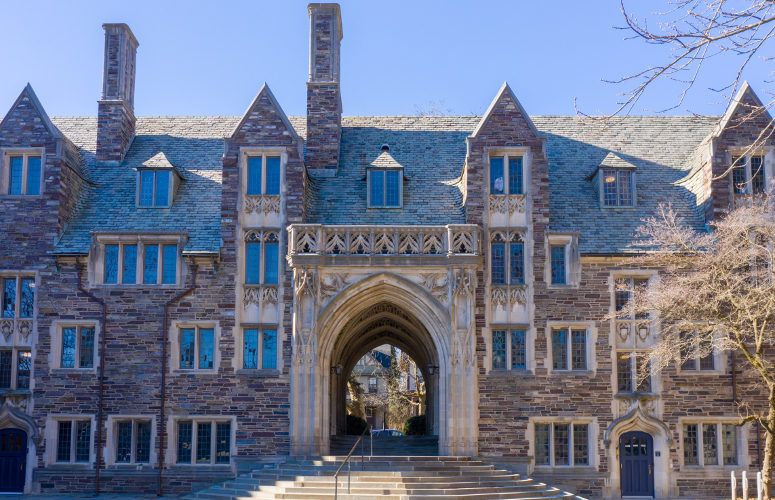
NJ’s Newest Master’s Degree Programs
Institutions of higher education are rolling out graduate degrees in an array of cutting-edge fields to meet both student demands and the employment needs of local businesses.
By Jennifer Lesser, Contributing Writer On Aug 12, 2020The events of this year have significantly impacted New Jersey’s economy, but one sector is usually impervious to economic unrest: higher education. The Garden State’s colleges and universities are reporting that when economic stability is shaken, they actually experience an uptick in enrollment. As the COVID-19 pandemic continues to unfold, New Jerseyans are taking the opportunity to pursue advanced degrees in the hopes of either switching professional gears or advancing within their current careers.
Employer (and Student) Demands
Institutions of higher education have been keeping up with the demand for graduate degrees by rolling out programs that will help students develop the skills employers need while giving them the personal and professional tools to enhance their careers in cutting-edge industries such as data science, supply chain management, and applied psychology. “Over the last 10 years, we’ve handed out 55% more graduate degrees than the previous decade, and we’re expecting a 16% increase in jobs that require a master’s degree between now and 2026. So, we believe that college is becoming what high school used to be, and the graduate degree is becoming essential to secure positions in middle management and up,” says Robert McCaig, vice president for enrollment management at Monmouth University. “While we encourage students to look beyond financial motivations when it comes to pursuing an advanced degree, the bottom line is that master’s degree holders earn 26% more on average than those with a bachelor’s … so they do have a lot of value.”
And, when it comes to operating in the midst of an ongoing health crisis, New Jersey’s institutions of higher education are continuing to adapt to meet the needs of students, whether it’s through remote learning or taking the necessary precautions when in-person classes do resume. “It’s the 21st century, so like many universities, we had already been offering a hybrid model of learning. We will allow students to access their course materials in whatever way they choose this fall, whether it’s on campus or online,” says Peter J. Economou, director of the masters of applied psychology program at Rutgers University. (It was announced on July 6 that Rutgers courses will mostly be offered online with limited in-person classes.) The university’s new master’s degree in applied psychology will allow students to earn experience conducting hands-on applied research in settings such as hospitals and schools.
In-Demand Industries
This fall, Monmouth University will be offering its newest master’s program in data science. “Big data has been huge for a few years, but you can just imagine the need for this type of skillset during a pandemic. The demand is high for people who can study and analyze data, in this case to understand everything from symptoms and patient treatment to determining how we can better handle situations like this in the future,” McCaig explains. “There are so many implications for this program, and we expect it to be a popular degree.”
The College of New Jersey (TCNJ) recently launched two new specializations within its MBA program: data analytics; and strategy, innovation and leadership. Data analytics will provide students with contemporary analytical skills to assist them in complex business decision-making, while the strategy, innovation and leadership track explores organizational and individual processes that lead to innovative ideas, products and services. The program was designed to help students think strategically, develop new insights on how people and organizations work, and cultivate managerial skills to enable them to lead others in initiatives of change.
“We’re seeing data and analytics becoming a new area of tremendous growth on a national and even global level, and we have students coming from a variety of industries because all companies want to understand data and how to use that knowledge to grow their business,” explains Chanelle Lester, director of the MBA program, who notes that TCNJ is also seeing an uptick in applicants when compared to the previous fall semester.
Forging Partnerships
When it comes to developing graduate degree programs, New Jersey’s colleges and universities understand the value of partnering with leaders from industry to cultivate classroom curriculum as well as facilitate real-world opportunities to ensure students are graduating with the skills that industry demands. Rutgers University will be launching a new master of health communication and information (MHCI) graduate degree in January 2021, and utilized a collaborative approach when developing the program. “We wouldn’t offer a degree like this without first talking to many nurses and doctors and academic leaders for their perspectives,” asserts Rutgers MHCI Program Director Richard Dool. The program will focus on the communication, information and the media element of health-related policies and practices for individuals who either wish to enter the healthcare industry or are currently working within health organizations or the healthcare communication field.
Creating a Master’s Degree Program
In addition to implementing new programs, some institutions of higher education are revamping their current master’s program in order to better meet the demands of local employers. Berkeley College currently offers an MBA in management, and this fall the college will be rolling out brand new concentrations including healthcare management, human resources, and supply chain management. “We had a range of motivations when choosing these particular programs; on the healthcare side, we had many students working in the industry who were requesting a more focused program, while supply chain management was the result of a conversation we had with a company that wanted us to develop a program specifically for their employees,” explains Robert Alvarez, director of the MBA program at Berkeley College. “It’s being developed with the employer’s needs in mind, but also as a standalone program of which other students can take advantage.”
Looking ahead, demand from local businesses is just one piece of the puzzle when it comes to the graduate degree programs of the future. “Adding a new program or concentration is not something we take lightly. It’s a long-term commitment,” Alvarez says. “We have to determine if it will continue to be in demand for both businesses and students, if there’s room for growth, and if our institution brings something unique to the table. It has to make sense from both an academic and a business perspective.”
And, of course, once a program is developed, Lester notes that you can’t just continue to recycle the same material year after year. “To be a truly valuable program, you have to be willing to change based on industry demands … and sometimes that means on a yearly basis,” she says.
Above all, McCaig notes that the university develops degrees with three key criteria in mind: employer demand, student demand, and faculty strength. “If one of those components is missing, we can’t move forward,” he concludes. “A new master’s degree program has to be one that the market tells us it wants, students tell us they need, and that we have the ability within our faculty to deliver in our own unique way.”
To access more business news, visit NJB News Now.
Related Articles:





